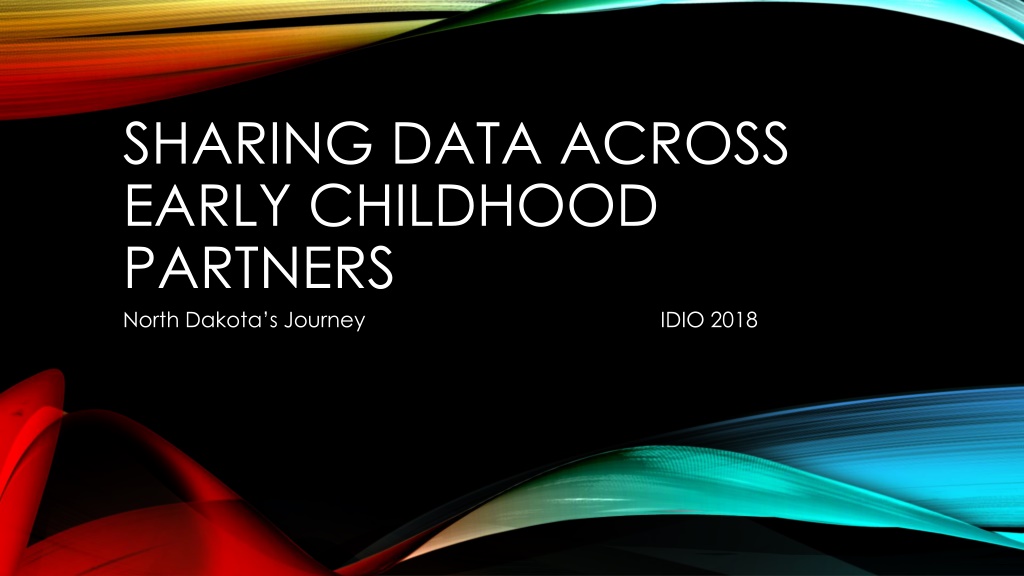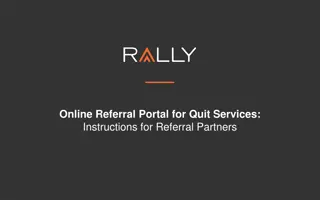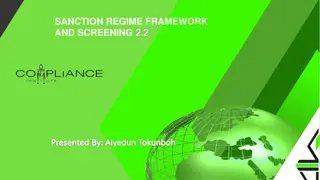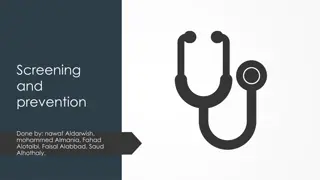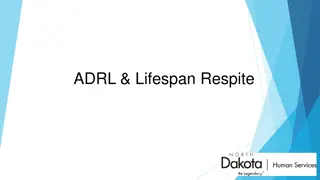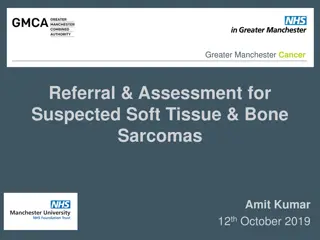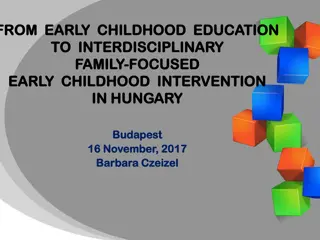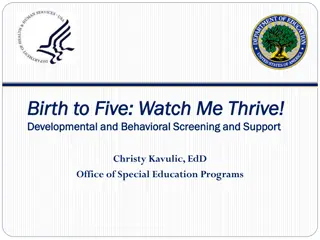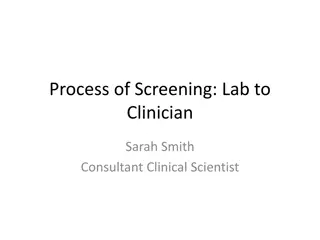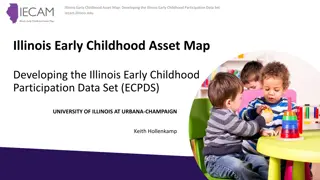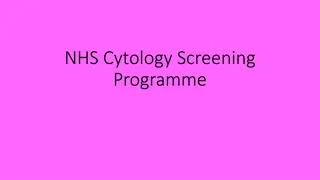Enhancing Developmental Screening and Referral Systems for North Dakota's Early Childhood Partners
North Dakota's journey in sharing data across early childhood partners involves various agencies such as the Department of Health, Public Instruction, Human Services, and more. Spearheaded by Prevent Child Abuse North Dakota (PCAND), initiatives like the Early Childhood Comprehensive System (ECCS) and Early Childhood Screening and Referral Systems (ECSRS) aim to streamline services, improve developmental screening, and link children and families to essential services. The transition towards developing an Early Childhood Integrated Data System (ECIDS) reflects the state's commitment to enhancing data management for early childhood programs.
Download Presentation

Please find below an Image/Link to download the presentation.
The content on the website is provided AS IS for your information and personal use only. It may not be sold, licensed, or shared on other websites without obtaining consent from the author. Download presentation by click this link. If you encounter any issues during the download, it is possible that the publisher has removed the file from their server.
E N D
Presentation Transcript
SHARING DATA ACROSS EARLY CHILDHOOD PARTNERS North Dakota s Journey IDIO 2018
NDS BACKGROUND MIECHV is housed in Department of Health Special Education Preschool (Section 619) is housed in Department of Public Instruction Office of Early Learning Head Start/Early Head Start is housed in Department of Public Instruction Office of Early Learning Part C is housed in the Department of Human Services Developmental Disabilities Division Child Care is housed in the Department of Human Services Children & Family Services ND has a strong Home Visiting Coalition, which collaborates with Prevent Child Abuse North Dakota (PCAND) PCAND sought and was awarded the federal grants to develop a home visiting program and developmental screening
ND EARLY CHILDHOOD COMPREHENSIVE SYTEM (ECCS) PCAND spearheaded the work to develop ND s ECCS, which included all the groups mentioned previously, as well as other potential partners, including pediatricians/physicians, vital records, public health units, Head Start, etc. This morphed into a group focused around screening and referral process which rebranded itself as the Early Childhood Screening and Referral Systems (ECSRS) in 2014 This group focused on the many services offering screening and referral across ND & how could this process be streamlined so there weren t multiple service providers screening the same child for the same purpose, while still meeting the needs of the child & family
ND ECSRS WORK GROUP VISION ND ECCS, in conjunction with its Early Childhood Screening and Referral Systems (ECSRS) Work Group, will enhance developmental screening and referral systems for all North Dakota children from birth through age three. This work will be accomplished through engagement with families, the medical community, and the early childhood community to ensure that children and their families, including those with special needs, are linked to services.
ECSRS TRANSITIONS TO ECIDS The work that ECSRS began morphed into a more formalized effort to develop a Early Childhood Integrated Data System in ND in 2016. This effort was spearheaded by ND s Head Start Collaborator, with many partners at the table, including Part C, Special Education, Child Care, Public Health, Parents, etc. ND realized that the current State Longitudinal Data System (SLDS) was not yet prepared to house ECE data ND felt that the momentum of developing an ECIDS would propel the work for the SLDS
ECIDS & LINKING DATA ND recognized the importance of linking data across programs and departments, so a stakeholder group was established to begin the work. The main questions noted by the stakeholder group were: Who s going to house the data? Who s going to have access to it? How is the data going to be used? How can parents be assured of confidentiality? Who initiates the child s record? How will the entire process be transparent? In trying to answer these questions, ND had representatives from the key departments (DoH, DPI, DHS, Head Start) at the table
UNIQUE IDENTIFIER Those key departments/partners quickly determined that it would be extremely difficult, or perhaps outright impossible, to link data from all the critical partners, without a unique identifier. Stakeholders had concerns regarding a unique identifier & how it would be used ND had questions regarding how to get it implemented & where the data would be stored. Many of the same questions regarding the ECIDS were also asked in relation to the unique identifier
& THIS IS WHERE THE PROGRESS SLOWS Personnel turnover & shortages, financial confines, and system limitations made the progress slow on developing an ECIDS. None of the Departments (DoH, DPI, DHS) have the capacity to house the data currently Nor the manpower to be able to manage it No additional funding is available to create a data system or pay for the staff Each Department currently has their own data system and without a unique identifier, it s not possible to feed data from the multiple departments involved into one system The inability to answer some of the critical questions asked by the stakeholder group ND is working to answer these critical questions through data governance and data sharing agreements between state agencies.
RENEWED EFFORT In an effort to foster some progress, ND participated in the IDEA Data Center s (IDC) Linking 619 & Part C data cohort and continues to seek TA in creating an ECIDS, now that there s an Office of Early Learning in DPI, which houses Section 619, Head Start/Early Head Start & General Pre-K. Collaborative partners continue to be DHS (Part C & Child Care), DoH (MIECHV) Collaborations between DPI & DHS have abounded in the last 2-3 years regarding aligning policies, practices, professional development, standards and being able to respond jointly to Legislative queries ND certainly hopes to develop a system of linking EC data in an efficient and purposeful manner, which will garner useful information, not just for departments, but for the State as a whole to show how critical EC services are & how impactful they are to families.
